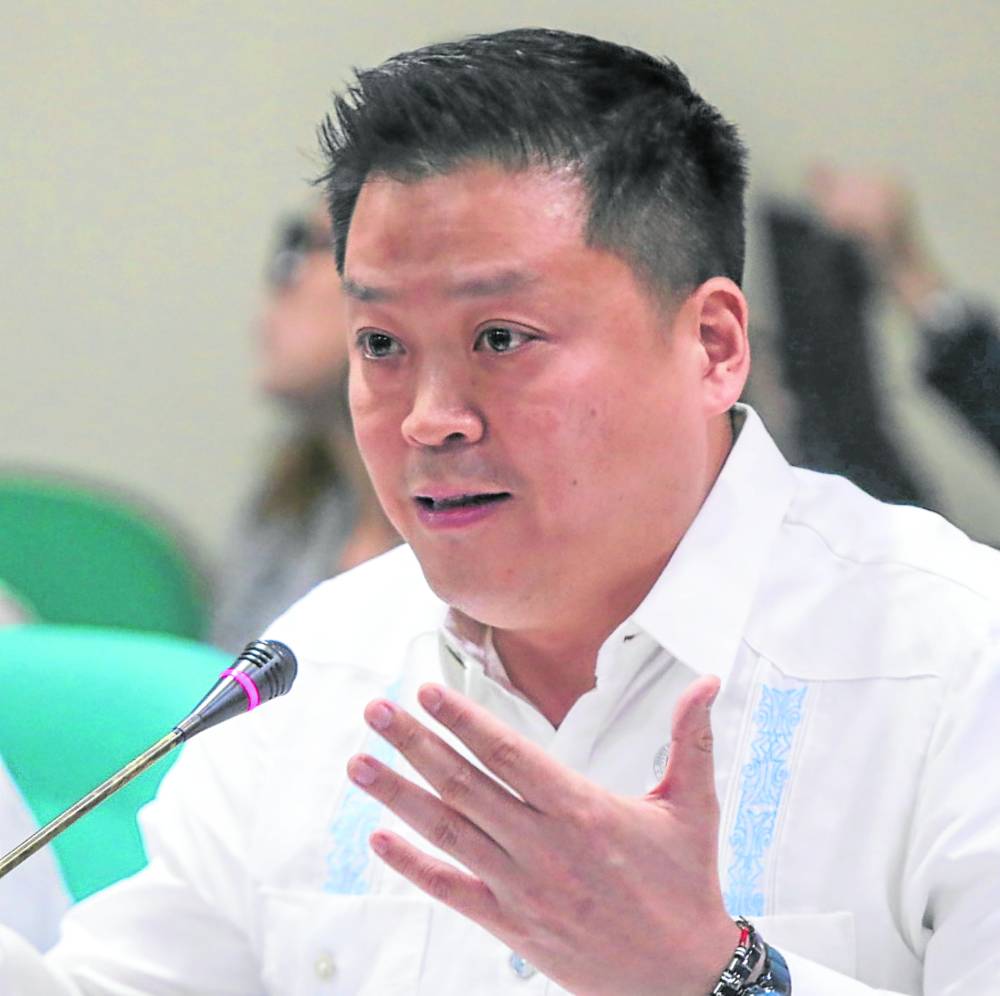
Social Welfare Secretary Rex Gatchalian
Senate PRIB / FILE PHOTO
MANILA, Philippines – Department of Social Welfare and Development (DSWD) Secretary Rex Gatchalian on Saturday dismissed claims that two major protective services program, Assistance to Individuals in Crisis Situation (AICS) and the Ayuda para sa Kapos ang Kita Program (AKAP), are being used for political purposes, including vote buying.
“Let me reiterate that all the DSWD’s Field Offices across the country serve people in need, whether they are walk-in clients or were referred to by local government unit (LGU) officials. The DSWD continues to process applications and distribute assistance through AICS and AKAP to qualified beneficiaries,” Gatchalian said in a news release.
READ: Talk to our people, House tells Senate on Akap program
The DSWD applies a “stringent verification and validation process” for clients who seek financial assistance, even the referrals from legislators and other local government unit (LGU) officials, he added.
“The assessment being done by our licensed social workers is critical to avoid the overlapping of assistance with the other DSWD programs,” he said.
Gatchalian noted that while the DSWD actively coordinates with LGU officials to organize payout activities, the funding for AKAP and AICS come from the agency’s budget as provided under the General Appropriations Act (GAA).
“There is no GAA line item that entitles any congressional district or LGU to have an allocation in any amount and lodged this with the DSWD that could benefit their constituents. Referrals from legislators and local executives are entertained pursuant to existing DSWD guidelines,” he said.
The AKAP provides one-time cash assistance between PHP3,000 and P5,000 to eligible beneficiaries.
To qualify, families must have an income that falls below the poverty threshold and must not be receiving assistance from other government programs.
To date, more than 6.5 million Filipinos in “difficult circumstances” were provided with aid amounting to PHP40.9 billion through the AICS program in 2023.
The amount released under the AICS program in 2023 represented a 98.5 percent utilization of the fund worth over PHP41.5 million.
The number of clients served under the AICS in 2023 was more than four times the program’s annual total target of 1,691,869 beneficiaries who are in need of assistance, such as medical, burial, transportation, education, food and other support services.
The Senate has removed the PHP39 billion proposed allocation for AKAP from the PHP6.352 trillion national budget for 2025.
Senator Imee Marcos said the PHP26.7-billion AKAP was a House insertion in the 2024 budget’s final version, where e-signatures of senators were attached after the fact.
“The President (Ferdinand R. Marcos Jr.) did not mention AKAP in the NEP (National Expenditure Program), nor was it in the bicameral version of the GAA, yet it appeared in the final, printed version,” Senator Marcos said in a previous statement.
The senator instead proposed combining AICS and AKAP for a more effective aid distribution to Filipinos in need.
Instead of dividing the budget among many programs, she said it would be better to focus on programs that have long-term impacts and those that will make Filipinos feel that they are productive members of society.
The DSWD said more than four million “near poor” Filipinos benefitted from AKAP during its first year of implementation, or January to October 2024.
The AKAP program has demonstrated strong impact with PHP20.7 billion in funds, or 77.57 percent already utilized out of the total PHP26.7 billion budget allocation.
The AKAP funds were allocated across all regions, with most areas achieving over 70 percent in fund obligations, like Regions 3 (Central Luzon), 5 (Bicol), and 6 (Western Visayas).
The National Capital Region alone provided assistance to over 589,000 beneficiaries, showing the scale and reach of the program’s impact.